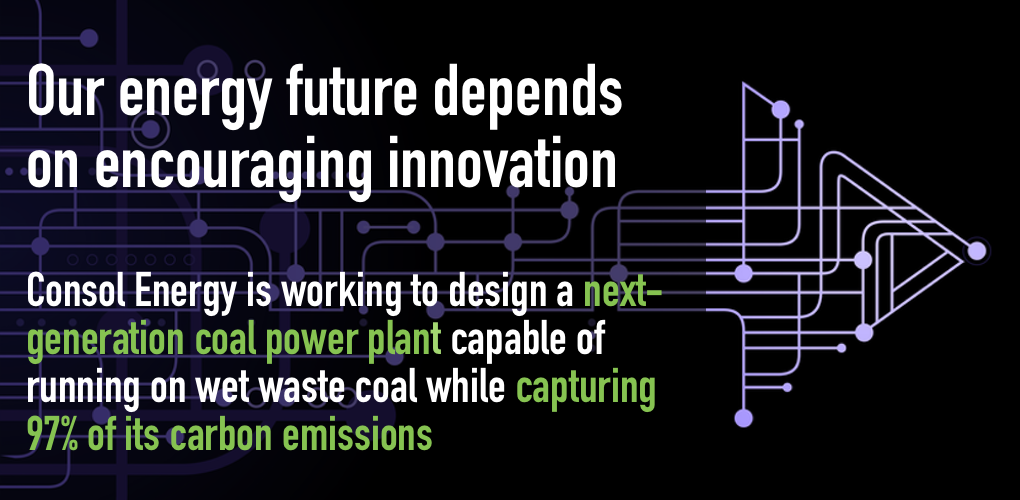
Consol Energy Wants to Build an Advanced, Carbon Capture-Equipped Coal Plant. It’s Exactly What U.S. Energy Leadership Demands.
A recent presidential candidate confidently declared that American ingenuity, directed at advanced coal technology, could produce essential breakthroughs. He said, “This is America. We figured out how to put a man on the moon in 10 years. You can’t tell me we can’t figure out how to burn coal that we mine right here in the United States of America and make it work.” That candidate was Barack Obama speaking on the campaign trail in 2008.
Much has changed since he uttered those words but what hasn’t is the need and urgency for America to take a leadership role in producing the advanced coal and carbon capture, utilization and storage (CCUS) technologies the world needs.
His running mate, and now our President-elect, has embraced the opportunity and necessity of pursuing these key technologies. His campaign website reads, Vice President Biden “shares the Carbon Capture Coalition’s goal ‘to make CCUS a widely available, cost-effective, and rapidly scalable solution…’” He continues, saying he will “double down on federal investments and enhance tax incentives for CCUS.”
A newly proposed project in Pennsylvania deserves the incoming Biden administration’s full support. In fact, it would seem to perfectly align with the President-elect’s vision. As part of the Department of Energy’s Coal First program (Flexible, Innovative, Resilient, Small, and Transformative), Consol Energy Inc., which operates the largest underground coal complex in North America, is working to design a next-generation coal power plant capable of running on wet waste coal while capturing 97% of its carbon emissions. The project also calls for launching the development of an underground carbon dioxide storage hub in southwestern Pennsylvania where the captured emissions would be injected for permanent storage.
The proposed 300-megawatt power plant, built using a modular design, would employ a high-efficiency, low-emissions technology called advanced pressurized fluidized bed combustion. Six plants around the world already utilize the technology, providing a proven operational history and knowledge base to build from. The innovative design will have a ramping ability and nimbleness that will make it a perfect complement to variable sources of power. Should design work advance as hoped and the policy environment for the project remain supportive, construction could begin by 2024.
This is precisely the type of project the U.S. must ensure comes to fruition if there’s to be a serious commitment to advancing energy and emissions solutions for the fuels the world uses and will continue to use far into the future.
The project is sure to face critics and naysayers – critics who will question any future for coal – but those critics remain stubbornly resistant to energy reality. Coal remains the world’s leading fuel for electricity generation and the key input alongside iron to produce 70% of the world’s steel. This project is as much about the world’s energy and emissions future as it is America’s.
The global coal fleet – particularly in Asia – is young and growing. Today, Asia accounts for 77% of global coal demand. By 2030, according to IHS Markit, it will reach 81%. Energy and emissions leadership – at least replicable and effective leadership – will almost certainly be built upon a foundation of breakthrough coal and CCUS technologies. That may not be what the Green New Dealers want to hear but it’s the reality smart policy must embrace.
That’s why advancing, deploying, demonstrating and learning by doing with emissions-reduction technologies that work with the fuels that are the lifeblood of the global economy is essential. The critical clean energy technologies of tomorrow hinge on innovation and investment that is happening – or not happening – today.
Consol’s project, from the innovative plant technology to the ambition to launch a carbon capture hub, is exactly the actionable, concrete step forward smart policy must nurture. As President-elect Biden has suggested, it’s time to double down.
- On November 25, 2020
